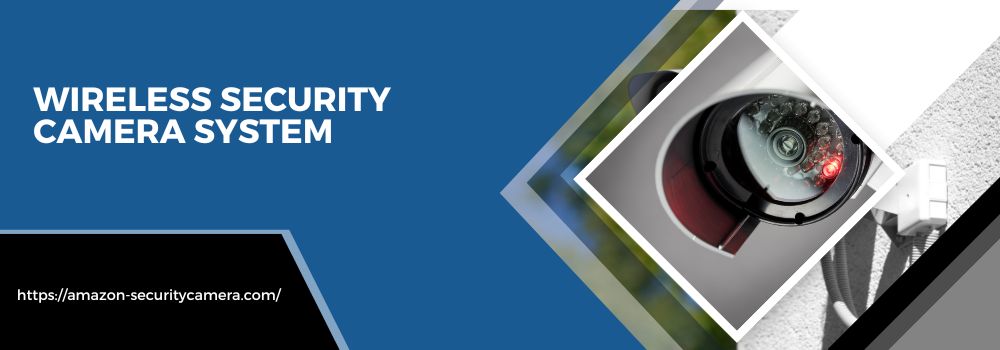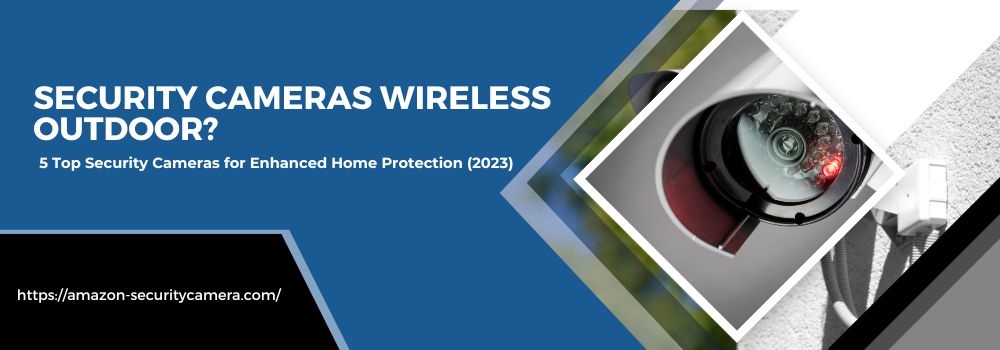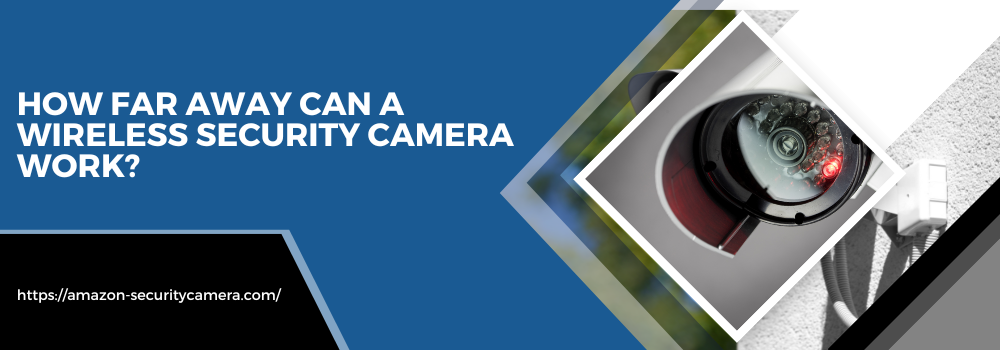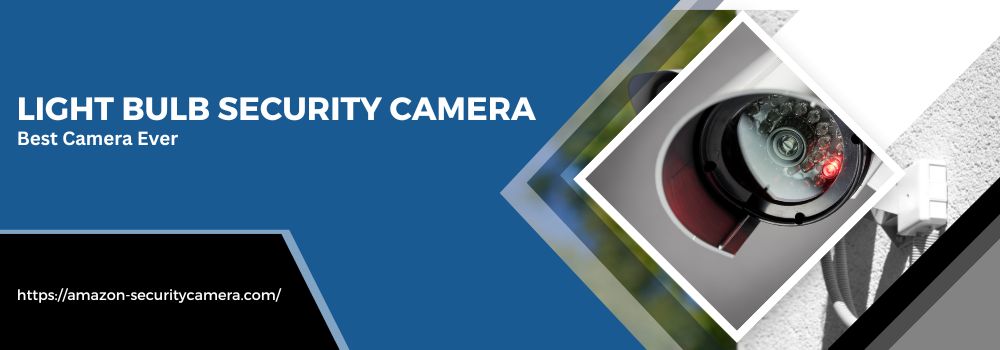A wireless security camera system is an essential tool for modern homes and businesses, offering a digital eye and a sense of safety and security. These systems have evolved significantly over the years, moving beyond simple video monitoring to incorporate advanced features like remote access, motion detection, and even AI capabilities.
The primary advantage of a wireless security camera system is its flexibility and ease of installation. Without the need for extensive wiring, these systems can be set up in varied locations, providing comprehensive surveillance coverage. Furthermore, they allow for real-time monitoring on digital devices, an invaluable feature for maintaining security.
The potential of wireless security camera systems extends even further with advancements in technology. The integration of AI has made it possible for these systems to intelligently recognize unusual activity, enhancing their effectiveness. With a combination of convenience, flexibility, and advanced security features, these systems have become a reliable safety measure.
Table of Contents
Introduction
Wireless security camera systems are no longer a luxury, but a necessity. They are vital for ensuring the safety and security of properties. Capable of 24/7 monitoring, these systems offer peace of mind to owners.
The beauty of these systems lies in their accessibility and convenience. The wireless feature allows for easy installation and flexibility in positioning. It ensures comprehensive coverage of the premises, leaving no blind spots or hidden areas.
The inclusion of AI technology has revolutionized these systems. Intelligent activity recognition has made them more proactive, reducing response times to potential security threats. Advanced wireless security systems are truly game-changers in property safety.
Importance of Home and Business Security
Both homes and businesses require robust security for a multitude of reasons. First and foremost, they house valuable assets, including electronics, furniture, and in the case of businesses, sensitive information. A robust security system deters potential criminal activity, ensuring the safety of these valuable assets.
Moreover, a secure environment fosters a sense of safety and peace of mind. For homes, it ensures the well-being of family members. For businesses, it creates a conducive working environment. Employees feel more secure knowing their workplace prioritizes their safety.
Lastly, insurance companies often provide discounts to properties equipped with security systems. This reduces the cost of insurance premiums. For businesses, it can translate into significant savings. Hence, investing in a robust security system is beneficial in many ways.
Types of Wireless Security Camera Systems
There are several types of wireless security camera systems available in the market, each with its own unique features and capabilities. Some common types include:
- Indoor cameras: These are designed for indoor use, providing coverage for specific areas within a property.
- Outdoor cameras: As the name suggests, these are designed for outdoor use and can withstand harsh weather conditions.
- Motion detection cameras: These cameras can detect motion and send alerts to the property owner or authorities, making them useful for preventing potential break-ins.
- Night vision cameras: These are equipped with infrared technology that enables them to capture clear footage in low-light conditions.
- Pan-tilt-zoom (PTZ) cameras: These cameras have the ability to move horizontally and vertically, providing a wider coverage area.
- 360-degree cameras: These cameras can capture footage in all directions, providing comprehensive surveillance coverage of an area.
Factors to Consider When Choosing a Wireless Security Camera System
When selecting a wireless security camera system, it is important to consider the following factors:
- Coverage area: Determine the areas that need surveillance and choose a system with appropriate coverage capabilities. For larger properties, it may be necessary to invest in multiple cameras.
- Resolution: Higher resolution cameras provide clearer footage, making it easier to identify details such as faces and license plates.
- Connectivity: Wireless security camera systems often rely on Wi-Fi or cellular connections. Consider the strength and reliability of these connections in your area.
- Power source: Some wireless cameras may require batteries, while others can be plugged into a power source. Consider the accessibility of these power sources and the battery life of wireless cameras.
- Installation: Some systems may be easier to install than others, so consider your technical abilities and choose a system that you are comfortable setting up.
- Budget: Wireless security camera systems come in a range of prices, so determine your budget and look for systems that meet your needs within that price range.
- Additional features: Some wireless cameras may come with additional features such as motion detection, night vision, or two-way audio. Consider if these features are necessary for your surveillance needs.
Indoor vs. Outdoor Cameras
Another important factor to consider when choosing a wireless security camera system is whether you need indoor or outdoor cameras. Indoor and outdoor cameras have different features and capabilities that make them suitable for their respective environments.
Indoor cameras are designed to be used in controlled indoor environments, such as homes or offices. They are typically smaller in size and may not have weatherproofing features. However, they often offer a wider field of view and can be easily mounted on walls or ceilings. Indoor cameras are ideal for monitoring indoor spaces, such as living rooms, bedrooms, or hallways.
Outdoor cameras, on the other hand, are designed to withstand harsh outdoor conditions such as rain, snow, and extreme temperatures. They have weatherproofing features and may also come with infrared night vision for low-light or dark environments. Outdoor cameras are typically larger in size and may have a narrower field of view compared to indoor cameras. They are ideal for monitoring outdoor spaces, such as backyards, driveways, or garages.
Standalone Cameras vs. Camera Systems
Another option to consider when choosing a wireless security camera system is whether you want standalone cameras or a full camera system. Standalone cameras are single units that can be placed anywhere and connected to your Wi-Fi network. They offer more flexibility in terms of placement but may not have all the features of a full camera system.
Camera systems, on the other hand, come with multiple cameras and a central hub or recorder. They may also come with additional features like motion detection, remote viewing, and cloud storage options. Camera systems are often more expensive than standalone cameras but offer a more comprehensive security solution.
When deciding between standalone cameras and camera systems, consider your budget, the size of your property, and the level of security you require. If you have a large property or want a more advanced security system, a camera system may be the better option. However, if you only need to monitor a smaller space, standalone cameras may suffice
Battery-Powered vs. Wired Power Cameras
Battery-powered cameras are wireless, offering the advantage of easy installation and flexibility in placement. They operate on batteries that need to be replaced periodically. This can be a concern if battery life is short.
Unlike their battery-powered counterparts, wired cameras require a power source. Running on direct electricity, these cameras provide continuous operation without the need to change batteries. However, installation might require professional help due to the wiring involved.
Choosing between battery-powered and wired cameras depends on your security needs, maintenance preference, and the layout of your property. It’s essential to weigh the pros and cons of each before making a decision.
Conclusion
In conclusion, choosing the right security camera system involves considering various factors such as the type of cameras, features, and power source. It’s crucial to assess your needs and budget before making a decision. Additionally, proper placement and maintenance are key to maximizing the effectiveness of your security camera system. With the advancements in technology, there is no shortage of options when it comes to security cameras. So, take your time and do thorough research to find the perfect system for your property. Remember, investing in a reliable security camera system is an investment in the safety and protection of your home or business. Stay safe! So don’t hesitate to invest in a high-quality security camera system that meets your needs and provides you with peace of mind.
FAQ
Q#1: Do I need to hire a professional for installation?
A: It depends on the type of security camera system you choose. Battery-powered cameras are relatively easy to install, while wired cameras might require professional help due to the wiring involved.
Q#2: Can I access my security camera system remotely?
A: Yes, most modern security camera systems come with remote viewing options that allow you to monitor your property from anywhere using a smartphone or computer.
Q#3: How important is camera placement for the effectiveness of the system?
A: Camera placement is crucial as it determines the coverage and visibility of your property. It’s essential to strategically place cameras in areas with high traffic and vulnerable entry points.
Q#4: Are there any weatherproof options for outdoor cameras?
A: Yes, there are many weatherproof options for outdoor security cameras available on the market. These cameras can withstand harsh weather conditions and provide reliable protection for your property.
Q#5: What features should I look for in a security camera system?
A: Some important features to consider are high resolution, night vision, motion detection, and remote viewing capabilities.



